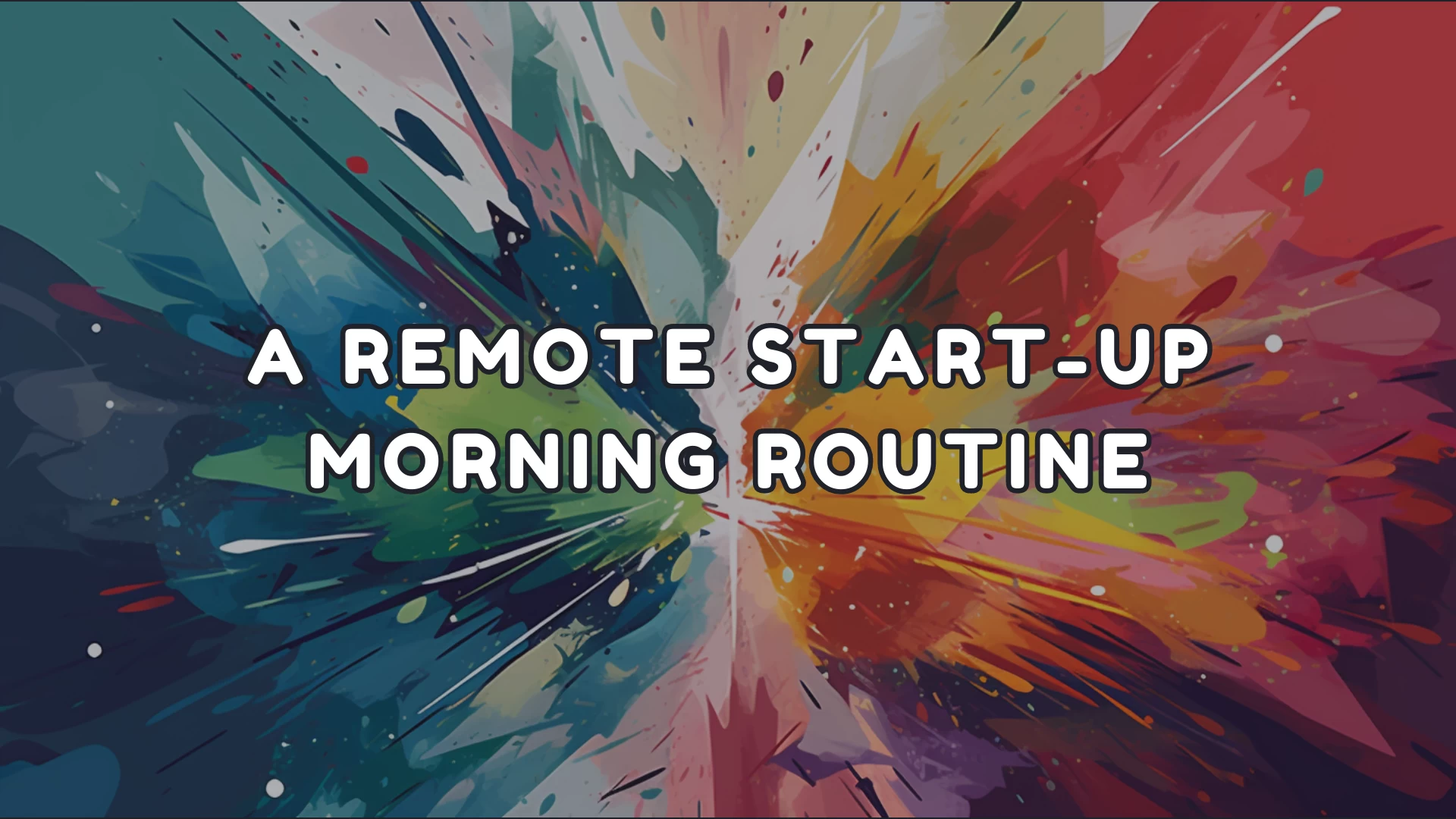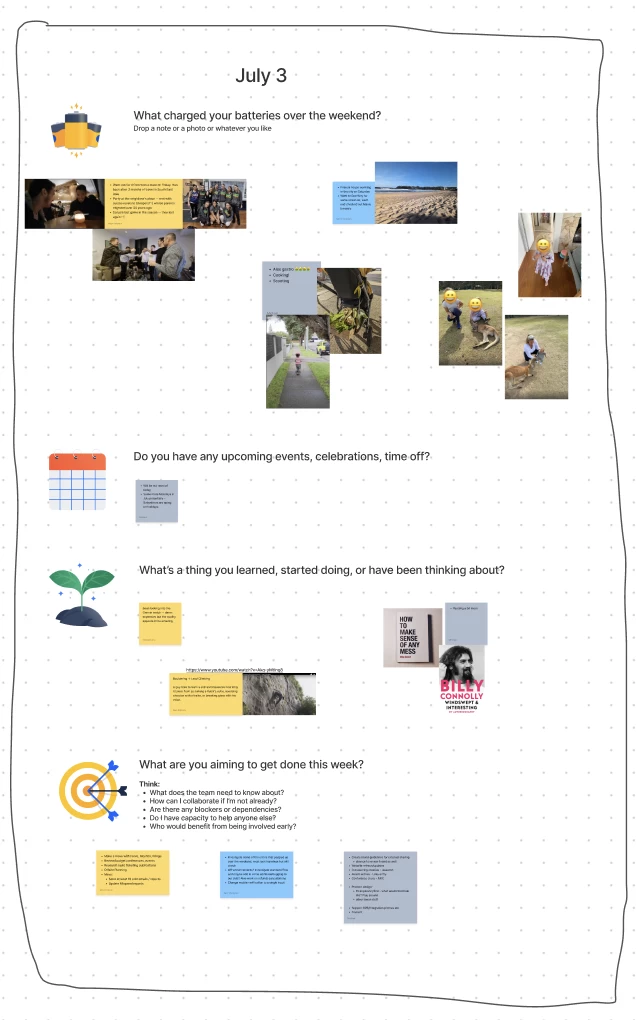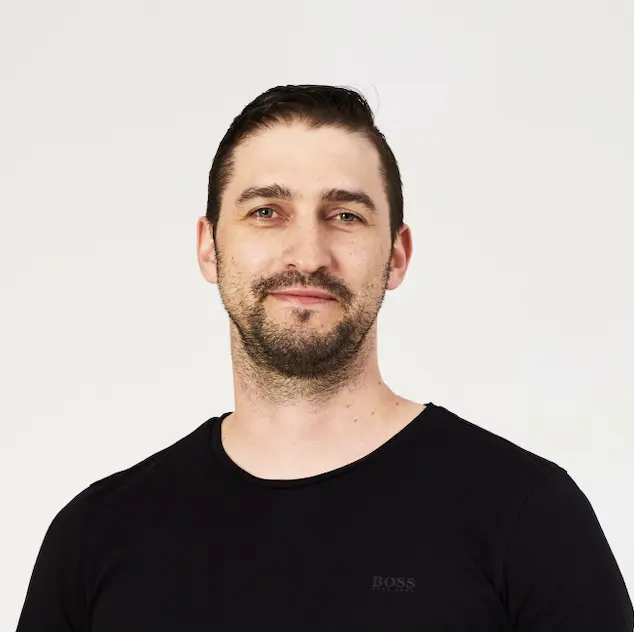Jul 3, 2023
A Start-Up Morning Routine

Working from home has become increasingly common, especially in the era of small, remote-first start-ups. But remote work can be hard! Particularly when it comes to fostering team cohesion and maintaining a sense of connection.
Here at Backpocket, we have 3 team members who work remotely on a full-time basis and our morning routine helps us build stronger relationships (and keeps us sane)!
In many companies, morning stand-ups are an opportunity for team members to share updates, discuss progress, and identify bottlenecks. We take a different approach. Instead of focusing solely on work, we dedicate 20-30 minutes every morning to strengthening our personal connections.
During their morning routine, we talk about various topics ranging from life, parenting, travel, movies, books, articles, hobbies, dreams, wins, DIY projects, social challenges, and more. We actively explore personal interests and experiences, and deepen our understanding of each other as individuals beyond our roles. We know each other and our families really well. It also helps practise Radical Candor - the ability to challenge directly while showing that you care personally at the same time.
In a small start-up, time is precious. We understand the need for efficiency and don't spend excessive time reviewing product boards together. Instead, we embrace asynchronous communication for most tasks. Our default is async. We only resort to meetings when urgent issues arise or when testing requires immediate collaboration.
Unlike fully remote companies like Basecamp, where everything is async, our team appreciates the real-time connection and interaction that the morning routine offers.
Mondays are special. We have a slightly different format for our Monday mornings - we use Figma to share updates (inspired by one of the Atlassian teams). The Figma file has several sections, including what charged our batteries over the weekend, upcoming events or celebrations, things we've learned or started doing, and our goals for the week. This format helps set the tone for the week.
Every team is unique (and special :). What works for one team might not work for another. Dare to experiment and discover what works best for your team's unique dynamics.

About Max Antonov
I'm a father of three from Sydney, a Product Director and a Product Coach. I write about product management and run the Product Manager community.
Feel free to reach out: [email protected].
Subscribe to receive digest emails (1 per month).
